How to Negotiate a Contract Like a Cartoonist
Want to learn how to improve your negotiation skills?
Watch other people negotiate.
“But Katie, that sounds boring! And possibly worse than suffering through the last episode of Lost.”
Perhaps. But not when Penny Arcade does it!

Strip Search, Penny Arcade‘s reality show, pits 12 cartoonists against one another to battle it out for a chance to win $15K and a year embedded at the Penny Arcade studio.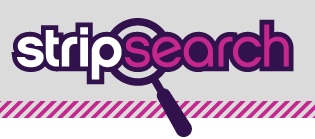
Last Friday’s challenge? Contract negotiations.
I couldn’t pass up the opportunity to use the episode to talk about the good, the bad and the ugly of negotiating contracts on your own.
Before I jump in, a big ol’ caveat: We’re looking at an edited version of what happened, not the full picture and we get the benefit of hindsight. Which is very different from being in the moment and having to do it yourself. Each of the contestants did some hard work so that we could all benefit; be thankful.
My commentary pretty much paces with the episode, and I’ve tried to use headings that will help you identify where I am in the episode. That way you can watch, pause, read, repeat. (You can watch the episode here.)
Ready? Let’s learn how to negotiate a contract like a cartoonist!
Reading a Contract
The contract is a good couple pages and everyone struggles to understand how to go about reading it. Contracts can be daunting to read, especially if you’re not used to reading them. Don’t let that get in your way.
“That’s a big ass contract.” — Lexxy
Short contracts are not always good and long contracts are not always bad, but if you’re unfamiliar with contracts, longer ones can be more difficult to parse. (It’s also easier to hide less than stellar terms in a longer contract.)
The basic structure of a contract is:
•Introduction of the parties (the two people or companies or entities entering into the contract)
•Definitions of words that have a particular meaning in the contract.
•An explanation of what the parties are going to do together. (Business-y bits.)
•An explanation of how the parties will handle conflicts and break-ups. (Legal-y bits.)
Use the definitions; they’re your friends! If a word is defined in the contract, it always means the same thing whenever it’s used.
Contracts often use headings to identify what each particular section is about. Use them to navigate and understand where you are in the contract.
If you’re really struggling, read the contract one section at a time and read it out of order. Start with the short sections and work your way up. If you can get a decent idea of what a good number of the sections mean on their own, going back and reading it top to bottom will be a lot easier.
“This [contract] is pretty terrible.” — Maki
Lawyers make mistakes. We make typos and forget to finish sentences and use confusing language. If something doesn’t make sense to you in the contract, don’t assume you’re just not getting it. Point those errors out!
Some attorneys also really love dumb words. Words like “heretofore,” “thereby” and “whereas.” These words are ridiculous in modern business and don’t make a contract any more legal. I apologize on behalf of my profession.
Maki Negotiates
Maki starts off strong by telling Khoo that he’d prefer to have his legal counsel look over the contract before he signs it. Yay! High-fives, Maki!
Having an attorney look over a contract and tell you what it means before you sign it isn’t a nice-to-have though. So you can use stronger language than “I prefer.”
My suggestion:
“My attorney will have to look over this before I can sign it. I’d like to take a first pass at the language with you, though, before either of us have to start paying our attorneys.”
As Maki begins to dig into negotiations, Khoo pauses and assures him, “I would never try to pull one over on you, Maki. Because we are friends.”
If anyone ever says this to you when you’re talking about a contract, I hope the little hairs on the back of your neck stick up.
The person could be perfectly genuine, but trust me: no one will consistently put your needs and interests above their own. No one.
And most contracts have this nifty section that says “This contract is our whole agreement; anything we ever agreed to before is replaced by this contract.”
So. It’s great to be friends, but don’t get pulled off track by someone who tries to make up for bad contract language with assurances that they really, super like you.
Maki does a good job of asking for changes to the contract but he uses phrases that are more conciliatory than he needs to be.
Replace “I’d like…” or “Could you…” with “I need…” or “The contract needs…”
“I need the contract to better define LC technologies.”
“The contract needs to be clearer about what rights I’m licensing.”
This is not rude. It’s OK to ask for things this directly. And if you do, you’re likely to get a better response than if you’re squishy about it.
Good Evening, Mr. Khoo
Lexxy’s up next and, like Maki, she knows what changes she wants and is ready to march through the contract to address each one of her concerns.
When Lexxy asks that Khoo get her permission each time he wants to license a new piece of merchandise (perfectly reasonable) he concedes and says, “It’s a little more work on my end, but I’m willing to do that for you.”
I call that a “goodwill gimme.” The original language is unreasonable and Khoo knows it. If she doesn’t bring it up, great, he keeps the language. If she does bring it up, it’s relatively easy to give in on; she’s really just asking for what’s status quo in the industry.
But, if he can make her think it’s a bigger give than it actually is, he banks goodwill with her and might be able to use it for a more important issue later on.
I think goodwill gimmes are good and I recommend that folks have a couple in their back pocket when they’re negotiating. But be aware of what they can sound like so you don’t get taken in by their flattery.
Lexxy knows what’s up, ignores Khoo’s flattery and moves on.
Next comes the one-two punch of the termination clause that we saw Maki negotiate earlier. In Lexxy’s case she makes a perfectly reasonable middle of the road request that it not apply in certain circumstances. In Maki’s case, he got the whole section excluded because he said he didn’t like it.
I point this out to highlight how important it is to talk to your peers about contracts and work. Let people know when you run into ridiculous language. Let them know how you were able to get especially good terms.
Imagine if Lexxy and Maki were chatting over coffee and she told him she was going in to talk to Khoo about a contract. Maki could have warned her about the one-two punch, “He’ll get rid of it if you ask.”
Lexxy does a great job of clearly articulating the changes that she wants to the contract. Being able to come to the table with wording for the changes you want isn’t necessary but can be helpful in moving the negotiation along.
Enter Abby
Abby, we know, is not having any of this. She’s not excited about it, she hated reading the contract; pretty much everything is awful forever.
But she knows why she wants what she wants.
Khoo tries to use deflection when she brings up concerns — “You have some problems with our contract? But I love the characters in your strip!” — and Abby does a good job of avoiding his attempts to get her off track.
How does she do it? She acknowledges their shared interest in getting the lunch boxes made and adds her interest in retaining ownership. It’s a really great example of the “yes, and” technique.
And when Khoo tries to confuse Abby about whether a contract provision is good or bad for her she does the right thing. Instead of getting flustered and going along with what he said, she tells him to wait, rereads the section and then reaffirms that she doesn’t like the provision.
Khoo tried to use “market data” to convince Abby she doesn’t really want what she said she wanted. This type of one-upmanship is fairly common: “You don’t like something? Look at my facts! My beautiful, smart, business-y facts.”
Sometimes facts should make you reconsider your positions. But if your interests are telling you that something doesn’t sit right, don’t take those facts at face value. Check them independently or ask yourself, “Even if those facts were true, would I want this thing I said I didn’t want?”
Katie Cleans Up
Katie has the last negotiation session with Khoo and like Abby approaches the contract with her mind on her interests: what’s important to her artistically, what’s important to her financially, and what’s important to her as a person doing business with Robert Khoo.
I could say a lot of similar things about Katie’s session that I said about the other’s, there can be a benefit in going last, but I do want to point out one thing she said about her experience:
“Upon reading the contract out loud to Robert some of the things that were confusing me became clear.”
Reading things out loud is a great comprehension trick; sometimes it’s just easier to understand how a sentence is working when you hear it out loud.
It’s also a great way of pointing out unreasonable language to the other party. Sometimes when they hear it from you they realize how bad it sounds.
Huzzah! They All Survived!
In the end everyone did a good job of holding their own negotiating what sounds like a fairly crappy contract. Congrats to all of them!
I hope you found this blow-by-blow of how to negotiate a contract like a cartoonist helpful. Did you see something in the episode that you particularly liked or that clicked for you? Let me know about it in the comments!
Strip Search and its logo are trademarks of Penny Arcade and the illustrative screen shots sprinkled throughout the post are from the show, which is copyright Penny Arcade. It’s a nifty show; you should check it out.
All illustrations are by Alexandra (Lexxy) Douglass and you can find more of her work here.
Categories: How To
« The Ace Freelancer’s Guide to Asking Questions: Babysitting Questions
The Ace Freelancer’s Guide to Asking Questions: Discovery Questions »

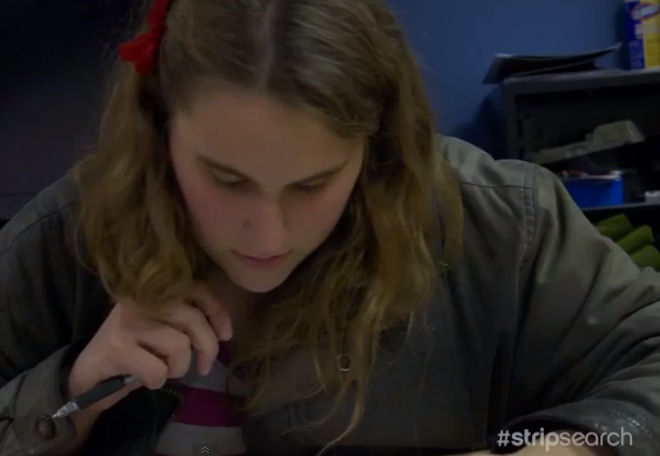
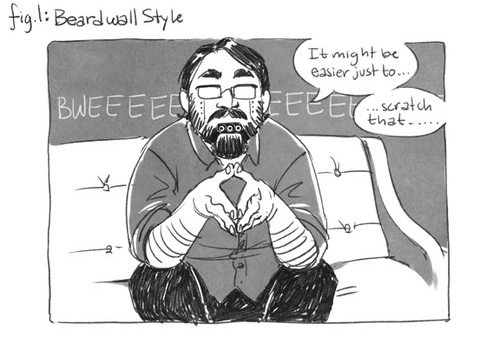
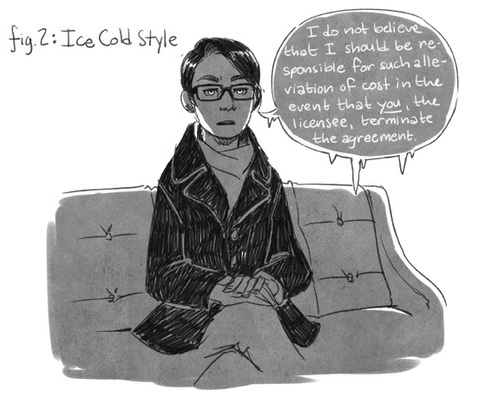
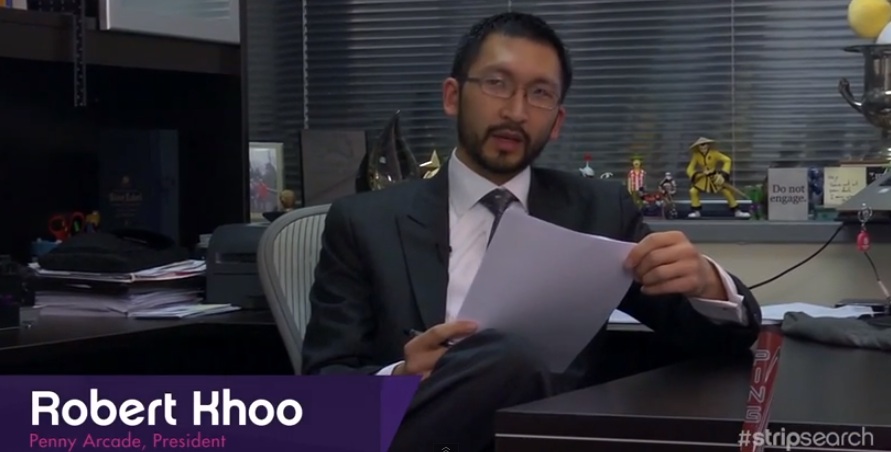
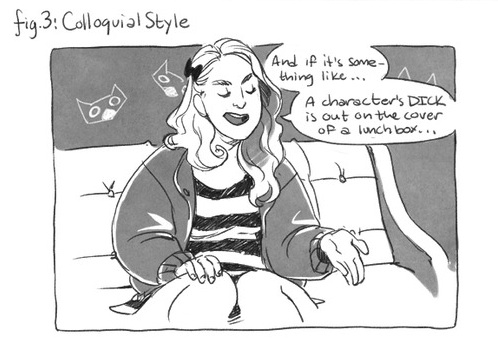
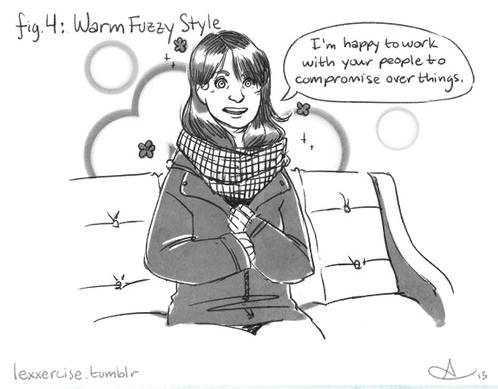
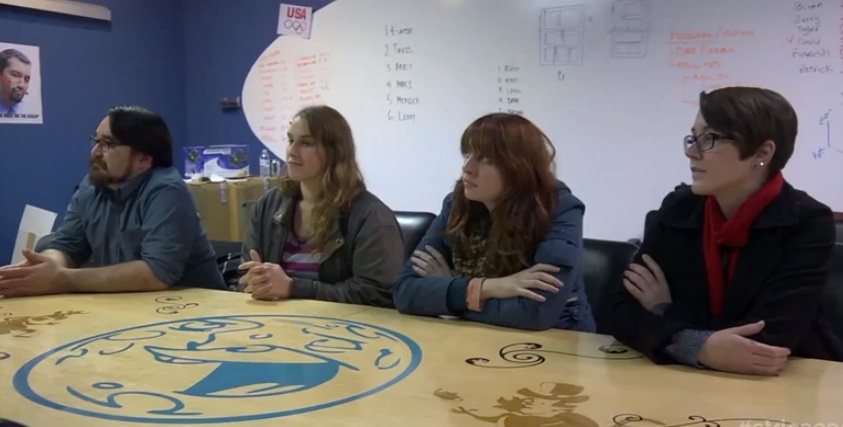


Thanks for the analysis! Watching the episode, I could tell that the contestants knew what they were doing, but it’s a bit easier to see why their approaches worked with your breakdown.
I was a bit surprised at how confrontational Abby seemed to be during her negotiation. Maybe it’s because I’m not familiar with the proceedings of such negotiations yet, maybe it’s because of the editing, maybe I’m reading it wrong, but it seemed… a bit unprofessional? I guess I’m asking, is her approach overall a good negotiation strategy? Having self-confidence and sticking with what you want are definitely must-haves in that situation, but she seemed almost too defensive. She got what she wanted out of the negotiation, so it definitely worked in the moment, but how likely is it that the negotiator would work with her again, as opposed to, say, Lexxy, who was very direct and confident but (at least seemed) less confrontational?
Good question! I think it comes down to a matter of style. Lexxy’s style wouldn’t have worked for Abby and Abby’s style wouldn’t have worked for Lexxy. Being yourself in a negotiation makes it easier to be confident in yourself and what you’re negotiating for.